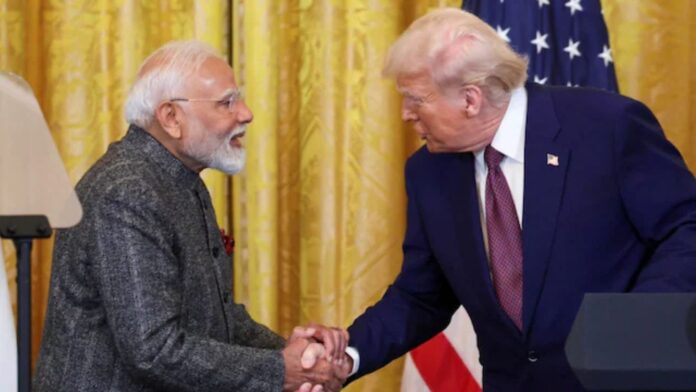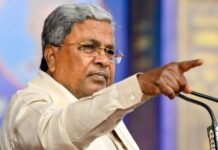New Delhi: Prime Minister Narendra Modi and U.S. President Donald Trump held a 35-minute phone conversation on Monday—their first direct exchange since the launch of India’s cross-border Operation Sindoor. The call, initiated by President Trump after a scheduled bilateral meeting on the sidelines of the G-7 summit in Canada was cancelled due to his early return to Washington, marks a key moment in India-U.S. diplomatic engagement following the April 22 Pahalgam terror attack.
Trump had earlier called Modi on the night of the Pahalgam attack to express condolences and extend his support to India’s counter-terror efforts.
Monday’s phone call was the first strategic-level discussion between the two leaders since then.
During the conversation, President Trump invited Prime Minister Modi to visit Washington for a bilateral engagement while returning to India from Canada. However, Modi, citing prior commitments during his return from Canada, expressed his inability to make the visit at this time. Both leaders agreed to explore a suitable opportunity for an in-person meeting soon.
As per official sources, Modi used the call to deliver a clear and unambiguous message: “India has never accepted mediation on its disputes with Pakistan, does not accept it, and never will”.
He also stated that India now views terrorism not as a proxy war but as direct warfare, and confirmed that Operation Sindoor remains ongoing.
President Trump responded by expressing strong support for India’s counter-terror operations and acknowledged the detailed account provided by the Prime Minister.
Significantly, Modi during the conversation, made it clear that during the entire period of heightened tension with Pakistan, there was no discussion of a U.S.–India trade agreement, nor any American role in mediation.
The PM also stated that all communications regarding de-escalation occurred directly between the militaries of India and Pakistan through established channels and were initiated by Pakistan. The Prime Minister said that on the issue of foreign mediation, there is complete political unanimity in India.
Modi shared details with Trump on the nature of India’s May 6–7 cross-border strikes, which were ‘measured, precise, and non-escalatory’, targeting only active terror camps located in Pakistan and Pakistan-occupied Kashmir.
Modi emphasised that India had made it clear to the international community that any bullet fired by Pakistan would be met with a shell from India.
The message from Modi comes hours before Pakistan military chief General Asim Munir was given an audience by the Trump administration for a one to one meeting in Washington.
Providing further context, Modi recounted that on May 9, U.S. Vice President Vance had contacted him to warn of a possible Pakistani military strike. Vance then was told by Modi that India would retaliate with even greater force if attacked.
That very night, Pakistan attempted an escalation, and India launched a powerful counter-offensive that inflicted heavy damage and rendered key Pakistani military airbases inoperable as detailed by multiple reports by the Sunday Guardian earlier including Pakistan Airforce bases which housed US F-16 fighter jets.
It was following this, Modi told Trump, that Pakistan formally requested a halt to India’s operations via existing communication channels.
The two leaders also discussed key global flashpoints including Israel–Iran conflict and Russia–Ukraine war.
On the Indo-Pacific, Modi and Trump reaffirmed the importance of continued strategic cooperation under the QUAD framework.
Modi extended a formal invitation to Trump to visit India for the next QUAD summit, which the U.S. President accepted, expressing enthusiasm about visiting.
The call is being seen as a reaffirmation of India’s strategic autonomy, its hardened posture on terrorism, and the quiet recalibration of U.S.–India ties in the context of evolving regional and global threats.
Back at home, this development is likely to defang the political attack on the government by the opposition , especially Congress’s leader of opposition Rahul Gandhi who has been claiming that the ceasefire was agreed to by Delhi under pressure from Washington.
Today’s conversation makes it clear that no such thing happened and Modi agreed to the cease fire on his own terms.








